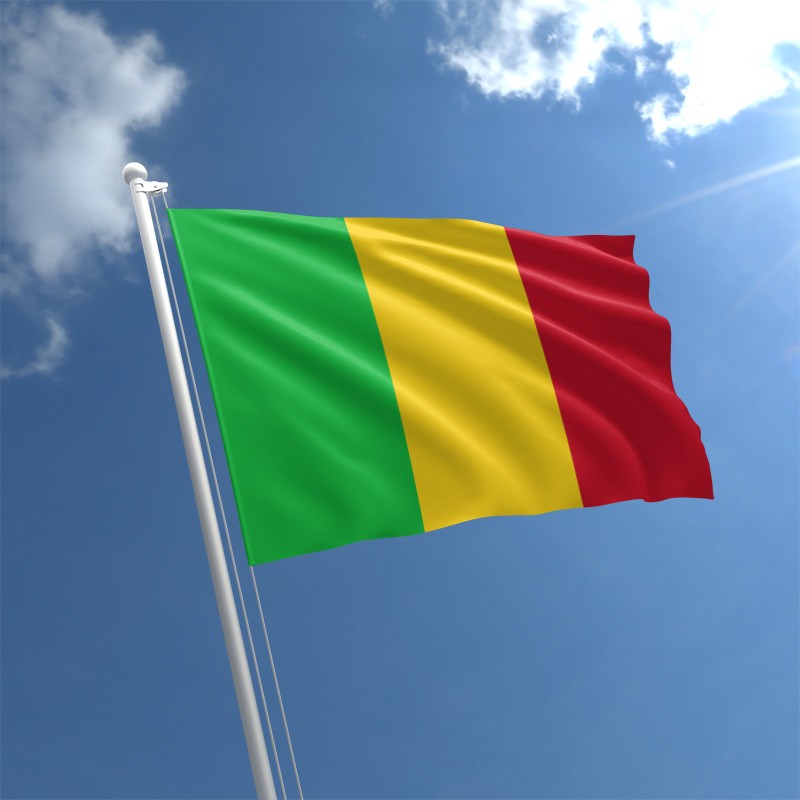Growing Extremism in Mali
July 20, 2018 | Expert Insights

Presidential elections in Mali are at an increased risk as the situation in the country has deteriorated over the past few months, despite millions invested by the international community.
Background
Mali is a land-locked nation in West Africa bordered by seven countries: Algeria, Niger, Burkina Faso, Ivory Coast, Guinea, Senegal, and Mauritania. It is among the 25 poorest countries in the world, dependant on gold mining and agricultural exports. The eighth-largest country in Africa by landmass, it has a population of approximately 17.8 million. 80% of the population is engaged in agriculture and related industries. Mali has numerous ethnic groups and languages, Bambara being the most populous ethnic group. 94.8% of the country population is Muslim and the official language is French.
Mali’s current troubles are rooted in a conflict that began in 2012, when long-time separatists led by a subset of the ethnic Tuareg group seized control of large portions of northern Mali, in partnership with Islamist extremist groups amid an influx of weapons from Libya. The country was plunged into further crisis when a faction of the military waged a coup in the capital of Bamako, citing frustration with the government’s inability to control its territory. Various local militant groups joined forces with international jihadi organizations, including a branch of the al-Qaeda, to take advantage of the turmoil and established a presence in the region.
In 2013, multinational and French forces ousted the separatists and jihadis, restoring the northern cities to the Mali government. Despite a peace agreement signed in 2015 by the government of President Ibrahim Boubacar Keïta and various anti-government armed groups involved in the 2012 uprising, violence persists. Today, the United Nations has a peacekeeping force of more than 15,000 personnel from 28 countries on the ground.
Analysis
With the upcoming 23 July elections, insecurity is a major issue for candidates including President Keïta, who has sought a second term. “It would be difficult to organize the elections in my commune in Mondoro, near the border between Mali and Burkina Faso,” a local official said. “The Malian army attacks the civilians thinking that they are complicit with the jihadists, and the jihadists attack the civilians thinking that they are complicit with the army. It’s a chaotic situation. People are afraid of kamikazes, conflicts in the polling station or even a post-election crisis.” The youth are drawn to violence not because of religious convictions but because they are angry at the longstanding neglect of their communities and have sought the security that armed groups can offer to their communities. When the government in February announced the election dates, al-Qaida’s Mali branch had issued warnings on social media against going to the polls. “Our duty to all is to neutralize these unbelievers with hands stained by the blood of the innocent and with pockets and safes filled with the money of the needy,” Abdou Abdirrahmane As-sanhaji, a senior judge of a coalition of jihadist groups had stated.
Extremist attacks in Mali have risen over the past year and the situation is worse than it was during the 2013 elections.
The UN has expressed concerns over the surge of inter communal violence. According to the UN peacekeeping mission in the country (MINUSMA), at least 289 civilians have been killed in almost 100 documented incidents in the central Mopti region. “In recent weeks, UN human rights staff in the country have documented an alarming trend of civilians being driven from their homes, either after being directly targeted themselves, because of the community they belong to, or after deadly attacks on members of their community in neighbouring villages,” said the spokesperson for the UN High Commissioner for Human Rights (OHCHR). An estimated 3,000 displaced Fulani members have also been displaced.
Counterpoint
Despite the security threats, residents are hoping that the elections go ahead. “Here in Timbuktu, people are used to terrorist attacks. The campaign continues despite terrorist threats,” said Alassane Ag Idiasse, who works with a private security group. “We only hope that everything will be fine.”
Assessment
Our assessment is that political and social disputes continue to fuel tensions, and might undermine the implementation of the peace agreement. We believe that extremists have taken advantage of the weakness of state power, and pitted communities against one another. We feel that Malian authorities must investigate the alarming increase in human rights violations by militias. Reducing the threat of violent extremism in Mali is crucial not only for the country, but for regional security.








Comments